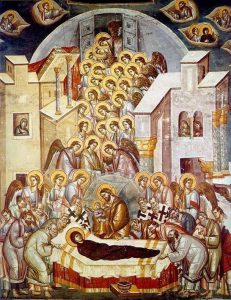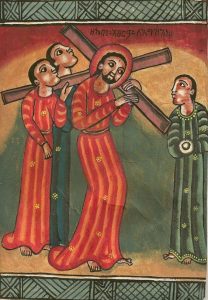 Galatians 6:11-16; John 3:13-17
Galatians 6:11-16; John 3:13-17
The Gospel today refers back to a story of Moses from the Old Testament:
“The Lord sent among the people seraph serpents, which bite the people so that many of the Israelites died. Then the people came to Moses and said, “We have sinned in complaining against the Lord and you. Pray to the Lord to take the serpents from us.” So Moses prayed for the people, and the Lord said to Moses: Make a seraph and mount it on a pole, and everyone who has been bitten will look at it and recover. Accordingly Moses made a bronze serpent and mounted it on a pole, and whenever the serpent bit someone, the person looked at the bronze serpent and recovered. (Numbers 21:6-9)”
This is a very unusual story, almost magical where a representation of a serpent is a healing talisman. However, for the Christian believer the full meaning is revealed only in our Lord Jesus Christ. St. John tells us that just as Moses raised the serpent in the desert, so Jesus was raised on the Cross so that anyone who looked upon him was healed of their sins. The serpent in the desert was not the serpent Eve saw in the tree in Eden, who brought death into the world through sin through his lie, but it was a serpent of life, who brought healing through the truth of faithfulness to God. But this was only a foreshadowing of Jesus. Of our Lord, St. Paul said, “For our sake God made him to be sin who did not know sin, so that we might become the righteousness of God in him. (2 Corinthians 5:21)” The serpent in the desert was bronze, yet brought salvation from the fatal bites of serpents. Jesus is truly God and truly a man, and brings the salvation of freedom from sin and death. Yes, “God so loved the world that he gave his only Son, so that everyone who believes in him might not perish but might have eternal life. (John 3:16) ” That is why in this great feast we celebrate this week, “We bow to your Cross and glorify your holy resurrection.”
Meditation by Archpriest David Petras
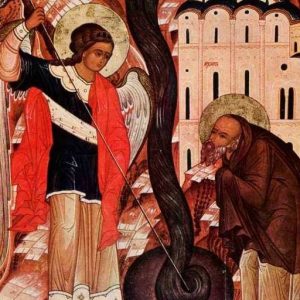 On the Byzantine liturgical calendar, today, September 6, we have the commemoration of the miracle of the holy archangel Michael at Colossae in Chionia.
On the Byzantine liturgical calendar, today, September 6, we have the commemoration of the miracle of the holy archangel Michael at Colossae in Chionia.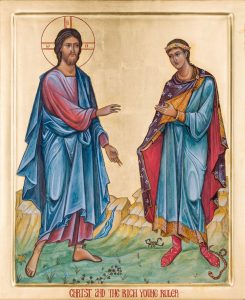 The Sacred Scripture for today’s Liturgy: 1 Corinthians 15:1-11; Matthew 19:16-26
The Sacred Scripture for today’s Liturgy: 1 Corinthians 15:1-11; Matthew 19:16-26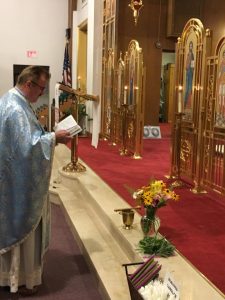 Tonight at the Divine Liturgy, Father Iura blessed herbs and flowers.
Tonight at the Divine Liturgy, Father Iura blessed herbs and flowers.